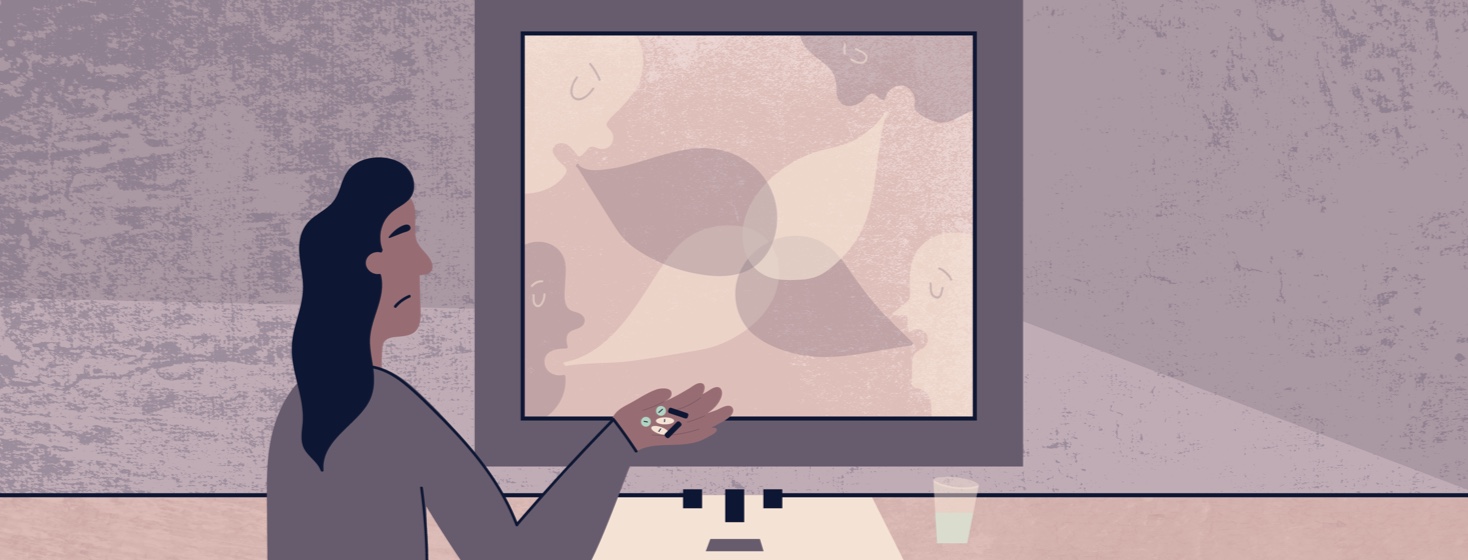Don't Tell Me Not to Take My Medications
There are many conditions where friends and family encourage you wholeheartedly to take whatever treatment options are prescribed by health professionals. Illnesses like diabetes, multiple sclerosis, asthma, cancer.
There are some conditions, however, where people you know and love, and sometimes people you’ve barely even met, have a robust opinion on how you should look after your own health and wellbeing.
I’ve met some of these people.
The two classes of much-commented-upon conditions seem to be sleep disorders and mental health. You would think, if you asked the general populace, that all the specialists in these fields know less than your average Joe Bloggs walking down the street. All those decades of education and experience quite pointless. I respectfully disagree. All those specialists know an awful lot of really important stuff.
Managing my sleep disorders and mental health
I drew the lucky (unlucky?) straw and have issues with both sleep disorders and mental health. In my mind, it is possible they’re related. Or maybe they’re not – I don’t know – but either way, treating these conditions is important not just for the quality of my life, but for my very existence.
Each evening I take:
- One medication for insomnia
- Two medications for restless legs syndrome (RLS)
- Three medications for mental health
I confess – scoffing handfuls of pills is not the highlight of my evening – but as a consequence of taking this cocktail the rampaging restlessness of my legs starts to settle, my mood is stable, and I fall asleep every night. These changes are nothing short of a miracle.
And that miracle is entirely due to medications.
Lifestyle changes are not enough
Sometimes – and I emphasise sometimes because there are people who are very supportive. But sometimes I find people who very kindly and forcefully suggest a list of lifestyle changes that will help my health and wellbeing. Now don’t get me wrong – these lifestyle changes are great contributors to a healthy productive life – but they’re not enough to cure a chronic condition.
- Walk daily
- Avoid alcohol
- Spend time in nature
- Increase magnesium
- Try St. John’s Wort
- Just get more sleep (insult to an insomniac)
- More magnesium
- Talk to friends
- Just be happy
- Check your iron levels
- Count sheep
- Pray
- Stretch
- Join a gym
- Eat well
- Take melatonin
- Avoid caffeine
- Reduce stress (useless advice - who is stressed by choice?!)
Honestly – I could fill this page with suggestions that must sound terrific to someone not suffering from a variety of conditions that don’t respond to a short meditation.
Well-meaning but unhelpful comments
These lovingly distributed comments are well-meaning but they’re also dismissive. Do you think I haven’t heard of that? Am I considered too lazy to Google? Or too reclusive to have heard about everyday remedies for complex ailments? Why would you think it appropriate to doubt very expensive medical professionals I have entrusted with my health and wellbeing?
I do understand that these well-intentioned comments come from a place of good intention. I really do. People trying to provide me with information that will make my life simpler – and cheaper. But these comments are also an insult to my intellect and a waste of ten minutes of my day. I politely listen then politely explain I’ve tried all the home remedies and for me, they take the edge off but they don’t bring me any blessed relief. I know some people respond amazingly well to lifestyle change, but not everybody does. A fistful of pills is a small price to pay for peace of mind.
How I respond to unsolicited advice
Sometimes I want to slap the supplier of this information with a dead fish – but I don’t. My response (after listening quietly for as long as I can bear it) is to say, “Oh, I have heard of that. I tried it many years ago and unfortunately, it didn’t help me. But I know it does work for a lot of people.” Which I promptly (very promptly) follow up with a question about the other person, as most people like nothing better than to talk about themselves and I like to listen to them. It’s a win-win situation.
I may sound a little cynical these days, but I’m 54 years old. I’ve dealt with sleep disorders my entire life and been immersed in the mental health maelstrom for five years. I have read everything I can find and visited countless professionals to find a balance of lifestyle and pharmaceutical solutions to give me peace of mind. I honestly don’t need well-meaning strangers to offer unsolicited advice about what I should or shouldn’t be putting into my own body to improve my own life. It’s my own business.

Join the conversation